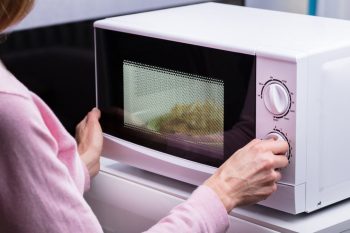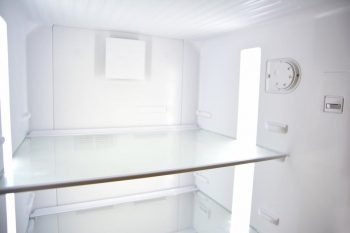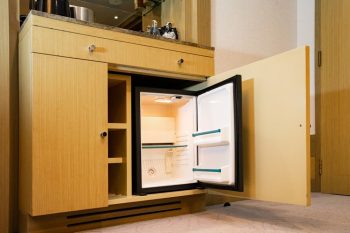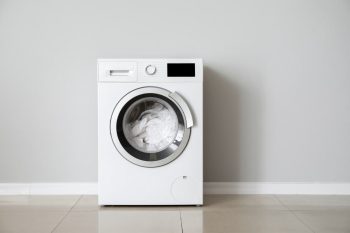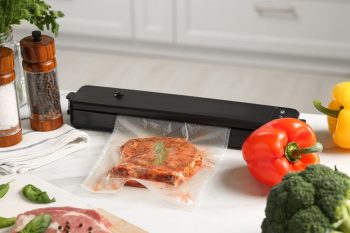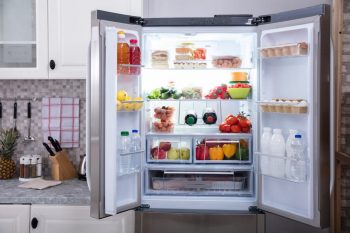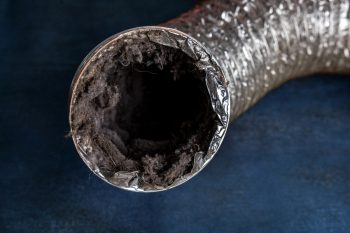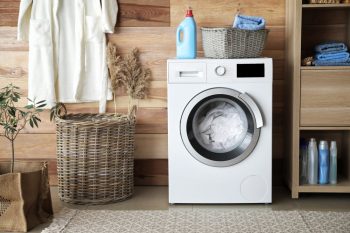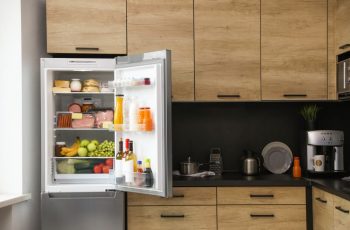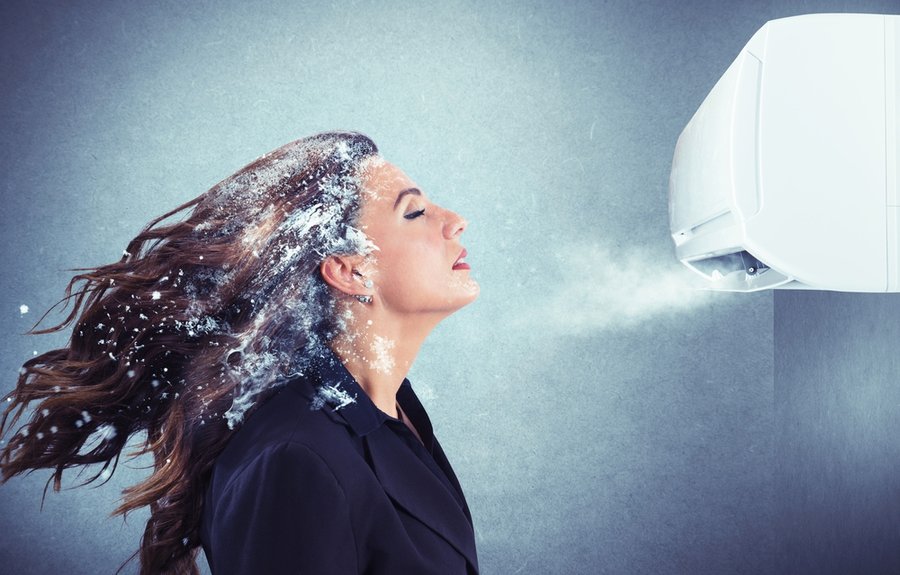
So it’s that moment of the year again! The temperatures are dropping, the snow is coming, and you’re getting ready to settle into winter mode – but then you hear it.
The hum and whir of your air conditioner running during the winter season. What’s going on?
Your air conditioner running during the winter season seemingly doesn’t make sense, but there’s a good reason it’s happening.
It’s simple – YOU’VE GOT A HEAT PUMP!
Unlike traditional air conditioners, heat pumps work all year round, and winter is just a typical moment for the business.
A heat pump is like having two systems in one; that is, the heat pump both cools and heats your home, depending on the season.
In this blog post, expect to learn why your air conditioner runs during the winter season, how a heat pump works, and why it’s even better than a typical HVAC system comprising a typical air conditioner and a furnace. So, if the uncommon winter sight has you scratching your head, keep reading for all the answers!
Here’s Why Your AC Is Running During the Winter
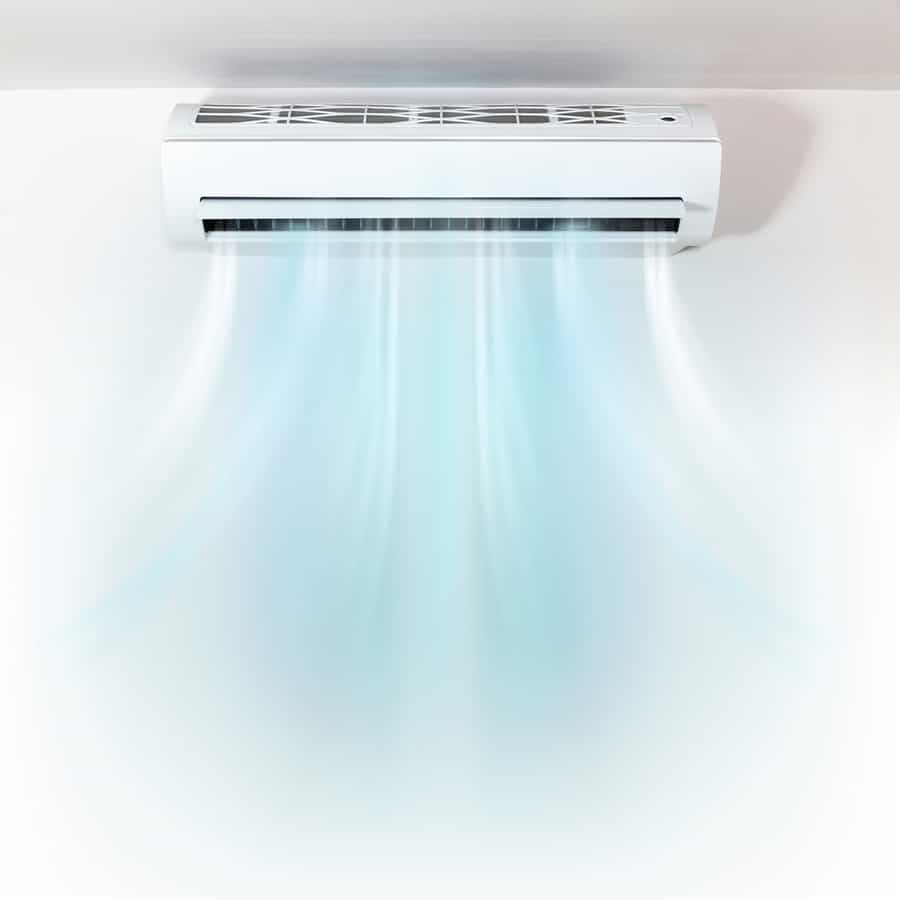
Usually, when winter rolls around, you don’t expect to see your air conditioner running.
After all, we’ve from time immemorial known ACs to be synonymous with summer.
And yet, here you are in winter, and your AC is still running. You’ve even confirmed that your thermostat is set to ‘heat’.
As if that is not enough, your vents collaborate with your thermostat, and you feel warm air coming out instead of the expected chilly air.
So what gives? Well, don’t panic yet!
Your AC carrying on the hard work during the winter isn’t a telltale sign of imminent danger to your wallet!
Instead, you’ve likely been relying on a heat pump to cool your home for all that time.
Yes, I used “heat pump” and cooling in the same sentence. It’s a thing! And here’s why…
What Is a Heat Pump?
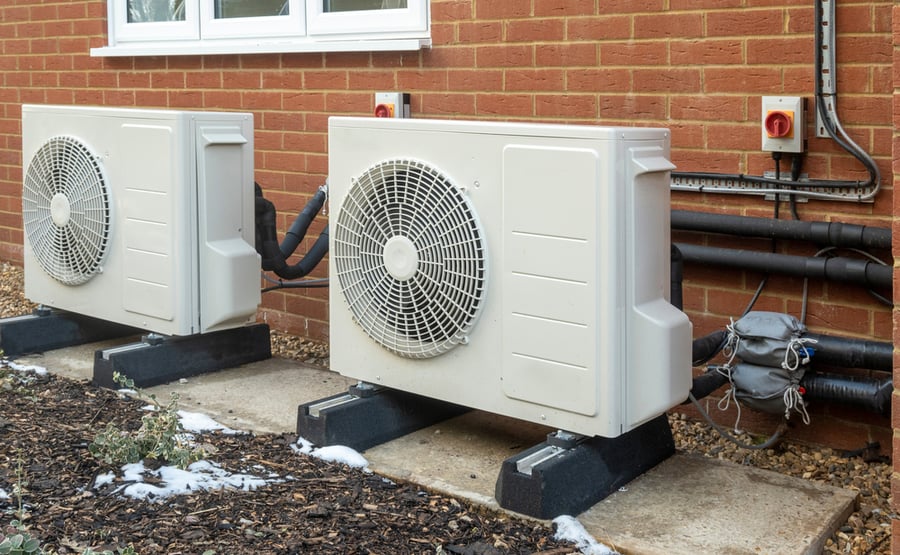
A heat pump is a device that moves heat from one space to another. In other words, it extracts warm air from outside and pumps it into your house during winter or takes cool air from inside and pumps it out of your house during summer.
Did you get all that?
In a nutshell, heat pumps are like having two systems in one. The unit’s scope of functionality is all in the name – it pumps heat!
What births the difference is the direction of the pumping.
During the summer, heat pumps absorb warm air from inside and pump it outside to cool your home, while in winter, it reverses this process and pumps warm air from outside into the house to heat it.
And that’s why your AC runs during winter- you have a heat pump!
Still, doubting it?
Let’s take a look at how you can clear all your doubts:
How To Tell That You Have a Heat Pump
First, you can’t distinguish a heat pump from a regular AC by looking at it. At least not the external anatomy.
Here are three ways you can tell the difference between the two:
1. Check the Model Number
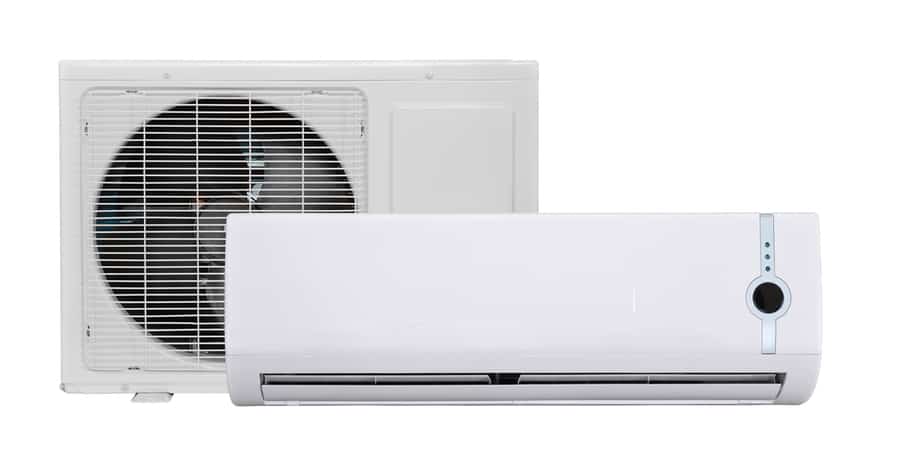
The best way to ensure you have a heat pump is to get the model number of your unit.
Usually, the model and serial numbers of ACs and heat pumps are indicated on the unit’s rating plate at the back. Once you have the model number, you can get every other helpful detail about your unit.
It’s simple – open your preferred browser and google the model number.
It’s good that you also key in the brand name alongside the model number to narrow the search. Then, take a look at the details!
If you come across any of these words – reverse cycle, dual fuel, or air-to-air – then rest assured that you have a heat pump!
2. Check for Reversing Valve
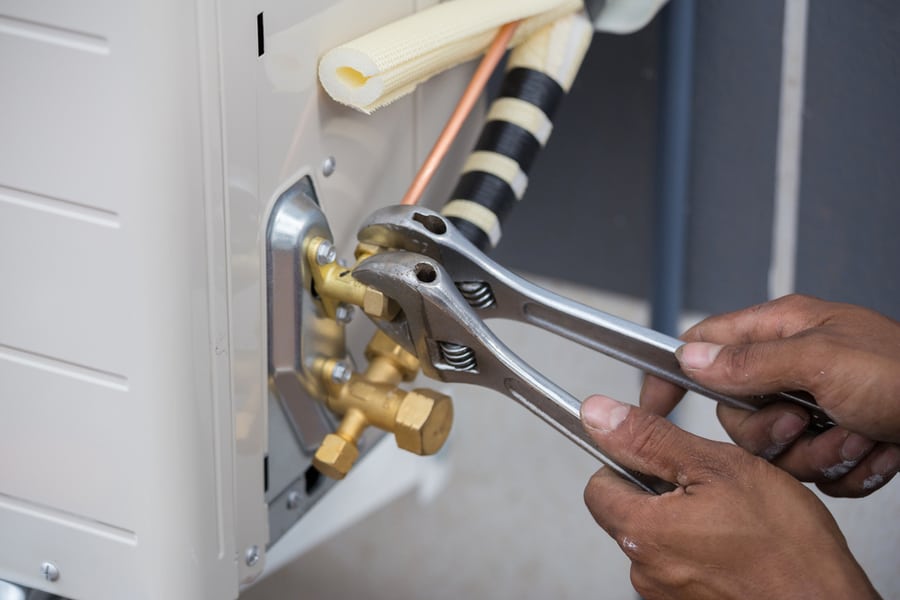
Another helpful tip is to check for a reversing valve. You should see this when you look through the unit’s grill!
A reversing valve usually appears as a brass contraption with 3 horizontal pipes. This part switches your heat pump from pumping the hot air in during winter to pumping the hot air out during summer.
If you can identify this, then kudos – you have a heat pump!
But then, if peering down through the grills doesn’t reveal any reversing valve, that doesn’t guarantee that you have a regular AC unit.
Some heat pumps have their reversing valve behind the access panel. After googling the model number, stick to what you discovered.
3. Use Your Thermostat
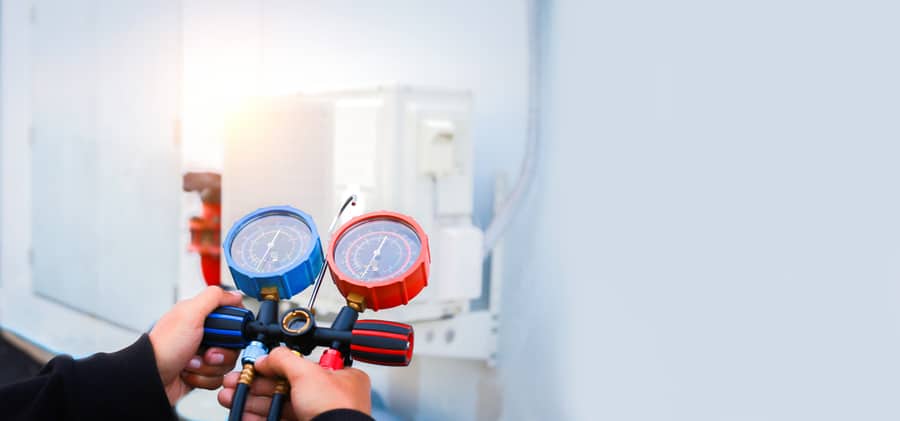
If you still need further confirmation, your thermostat should greatly help. All you need is to set the device to heat.
Then, wait until your home heats up. Then, walk to the outside unit and see if it’s blowing air.
If the outside unit blows air, you have all your confirmation – you have a heat pump!
But then, this method doesn’t work all the time, and sometimes you may need to pack some patience. That leaves you with online search as the most reliable method.
Do you Have a Heat Pump – Bad or Good News?
Worry not if all the tests point towards having a heat pump. It’s good news! Let me explain why:
1. A Heat Pump Is Versatile
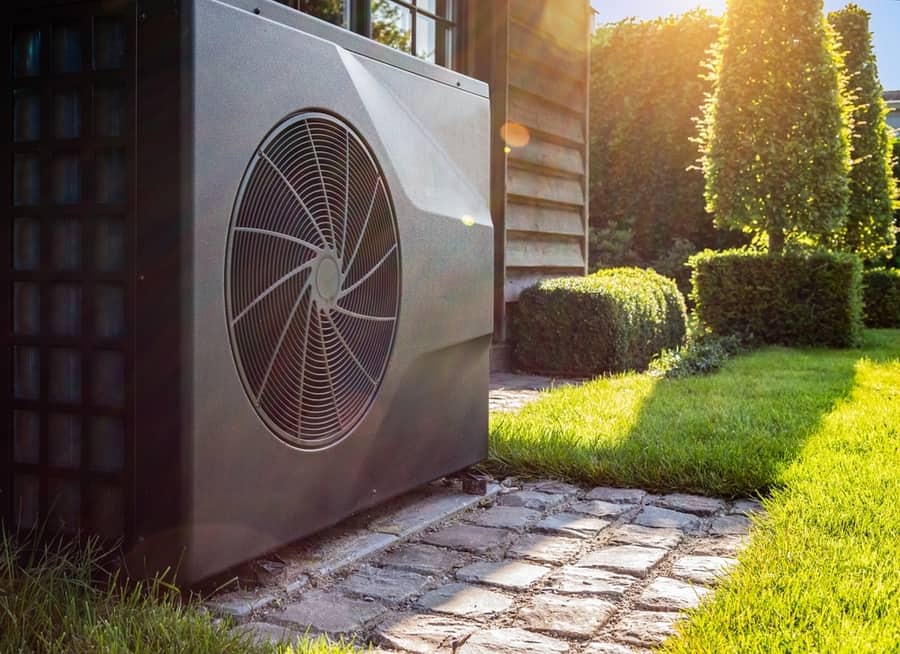
An air conditioner alone doesn’t make a complete HVAC system. You have to pair it with a furnace or other heating system.
But with a heat pump, you don’t need any of that!
A heat pump is a 2-in-1 system that works as an air conditioner and a furnace. That means you don’t need to purchase a separate heating system.
Instead, you can enjoy the comfort of a single device that cools and heats your home!
2. Heat Pumps Are More Efficient
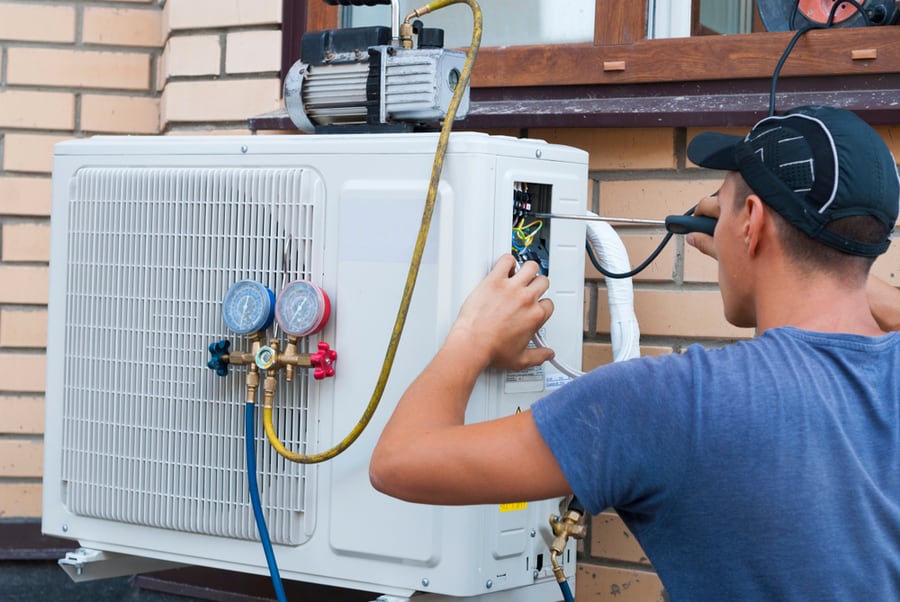
With all the appliances around your home, efficiency matters. And that’s where heat pumps come in handy.
Heat pumps don’t use much energy like other heating systems.
That’s because, unlike furnaces, baseboard heaters, and other heaters that create heat, a heat pump transfers existing heat from one place to another.
Thus, it’s more efficient! If you need stats to support this claim, Energy Saver states that a heat pump can reduce your heating energy bills by up to 50%.
3. Heat Pumps Are Environmentally Friendly
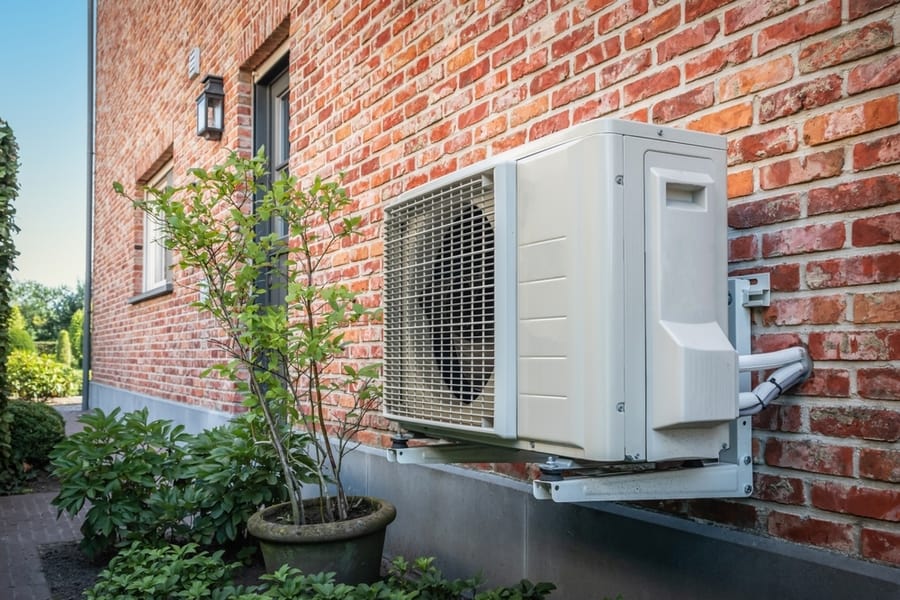
An analysis by UC Davis on greenhouse gas emissions shows that home energy use accounts for 20% of the overall carbon emissions in the US.
Of the 20%, 60% is from heating and cooling systems.
Well, that’s especially true if you’re using a traditional furnace that creates heat by burning fuel.
On the other hand, a heat pump doesn’t burn any fuel and does the same job efficiently. Heat pumps are often labeled as the “green” option.
Maintaining Your Heat Pump
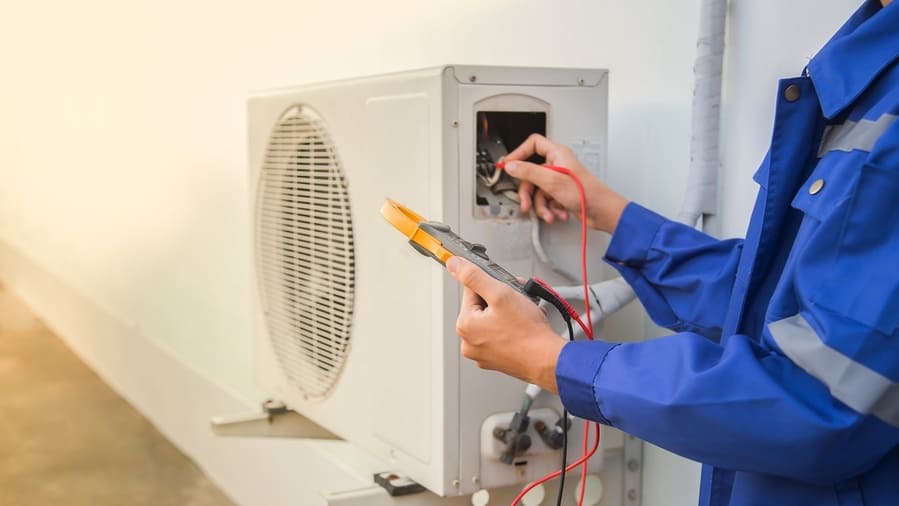
Now that you know why your “air conditioner” is running in the winter, it’s time to ensure it stays in proper shape.
Proper heat pump maintenance improves overall efficiency and could save up to 25% on energy bills. Well, that’s according to Energy Saver, a branch of the US Department of Energy.
Thankfully, this part isn’t as difficult. All you have to do is get a professional HVAC technician to inspect your system annually.
In their inspection, you can expect them to:
- Check the condition of the thermostat
- Identify refrigerant leaks
- Diagnose and fix duct leakage
- Measure to ascertain adequate airflow
- Check to ensure correct electric control
- Inspect ducts, filters, and other components for dirt and clogs
- Measure to ensure correct refrigerant discharge
Of course, getting an annual inspection will come with a price tag. But it’s worth it because you’ll save loads of money and headache in the long run!
Conclusion
When your air conditioner is running in the winter, you needn’t worry. It’s probably a heat pump, and that’s good news! Heat pumps are energy and cost-efficient and offer a double benefit – cooling and heating!
On the downside, you may need to pay for annual maintenance. But that’s a small price to pay for the comfort and efficiency it offers! And in fact, it’s something you still have to pay for with other heating systems.
So, now that you know why your air conditioner is running during the winter season, get ready to enjoy the comfort and efficiency of your heat pump!
Frequently Asked Questions
Should I Turn Off My Air Conditioner During Winter?
Usually, an AC will turn off automatically in winter. But if you’re living in areas that experience mild winters, the unit may turn back on.
As such, it’s always best to manually switch your AC off rather than assume it will remain off during winter.
Can I Use Heat Pump as a Primary Heat Source?
Yes, you can! Heat pumps are designed to be both air conditioners and furnaces. Thus, they can be your home’s primary heated or cool air source.
But if you already have existing heating systems, you can use the heat pump to supplement your present system.
What Is the Main Disadvantage of a Heat Pump?
A heat pump’s main disadvantages are its high upfront cost, low efficiency during extremely cold temperatures, and might need more maintenance than other heating systems.
But then again, the advantages of owning one outweigh its drawbacks by far.

